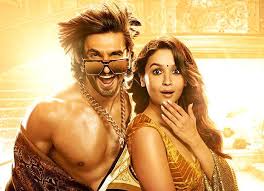STAY CURIOUS
Keep reading to find the excellency out of perfection and skill.
By: Milestone 101 / 2024-12-11
bollywood
From Tradition to Transformation: Bollywood's Evolving Family Dramas and Their Bold Social Commentary
Bollywood has been a cornerstone of Indian cinema, known for its grandeur, music, and storytelling.

In recent years, it has significantly evolved its approach to family dramas, addressing contemporary issues and engaging a younger audience Gen Z and Millennials. Films like Gehraiyaan and Jug Jugg Jeeyo, along with web series like Made in Heaven and Modern Love Mumbai, are testament to this shift. By tackling taboo topics such as infidelity, LGBTQ+ relationships, generational conflict, and mental health, these narratives resonate with audiences who value relatability and authenticity over traditional moralistic tales. Bollywood’s traditional family dramas often celebrated unity, sacrifice, and cultural values, exemplified by films like Kabhi Khushi Kabhie Gham and Hum Saath Saath Hain.
While these remain beloved classics, younger audiences seek stories that reflect the complexities of modern life. Films like Jug Jugg Jeeyo explore the ripple effects of divorce in a traditional Indian family. The narrative deftly balances humor and emotion while showcasing how individuals navigate societal expectations versus personal happiness. On the other hand, Gehraiyaan dives deep into themes of infidelity, unresolved trauma, and emotional turmoil, highlighting the intricacies of modern relationships. These narratives resonate with Millennials and Gen Z, who often grapple with such issues in their own lives, making these stories relatable and thought-provoking.
OTT platforms have been instrumental in transforming family dramas for younger audiences. Shows like Delhi Crime and Gullak offer slices of life that appeal to modern sensibilities. For instance, Gullak portrays the struggles and joys of a middle-class family with remarkable authenticity, earning widespread acclaim for its humor and heartfelt storytelling. Similarly, Made in Heaven challenges societal norms by addressing LGBTQ+ relationships, infidelity, and class divide, offering a nuanced look at contemporary Indian society. OTT platforms also allow filmmakers to delve deeper into taboo subjects, which might not find favor in traditional cinema.
This shift has led to stories that challenge stereotypes, presenting a more inclusive and progressive view of family dynamics. One of the defining traits of these new-age family dramas is their diverse portrayal of relationships and cultures. Films like Kapoor & Sons depict a dysfunctional family grappling with secrets and unresolved tensions. The film’s exploration of a gay protagonist’s struggles in a conservative setup resonated with audiences, sparking discussions about acceptance and love. Similarly, Badhaai Ho humorously and sensitively tackled the stigma around late pregnancies, highlighting how generational perspectives clash yet converge in unexpected ways. These films challenge societal norms, making them relatable for younger audiences while initiating meaningful conversations.
Another significant aspect of modern family dramas is their focus on mental health. Films like Dear Zindagi emphasize the importance of therapy and self-care, breaking the silence around mental health issues in India. By normalizing conversations about emotional well-being, such narratives connect with a generation that prioritizes mental health more openly than previous onees. Bollywood's visual storytelling has also evolved to appeal to younger audiences. Directors use sleek cinematography, urban settings, and contemporary music to create a relatable ambiance. The narrative styles are often layered, focusing on individual arcs rather than a single protagonist, which mirrors the interconnected yet individualistic lives of Millennials and Gen Z. Despite the progress, some challenges remain. Certain topics are still considered taboo, and mainstream acceptance can be slow. Additionally, balancing commercial appeal with meaningful storytelling requires nuanced filmmaking. However, the increasing popularity of these films and series suggests a growing appetite for such narratives. Bollywood’s reimagining of family dramas is a reflection of a society in transition.
By addressing taboo topics and showcasing diverse perspectives, it creates a bridge between tradition and modernity. For Millennials and Gen Z, these stories provide not just entertainment but also a mirror to their lives, encouraging dialogue and understanding across generations. With the continued rise of OTT platforms and bold storytelling, the future of Bollywood family dramas looks both promising and progressive. This evolution not only enriches Indian cinema but also solidifies its relevance in an ever-changing cultural landscape.
2022 © Milestone 101. All Rights Reserved.